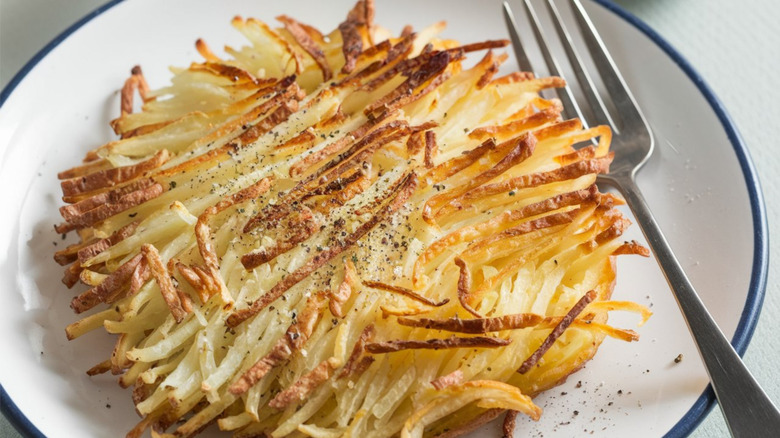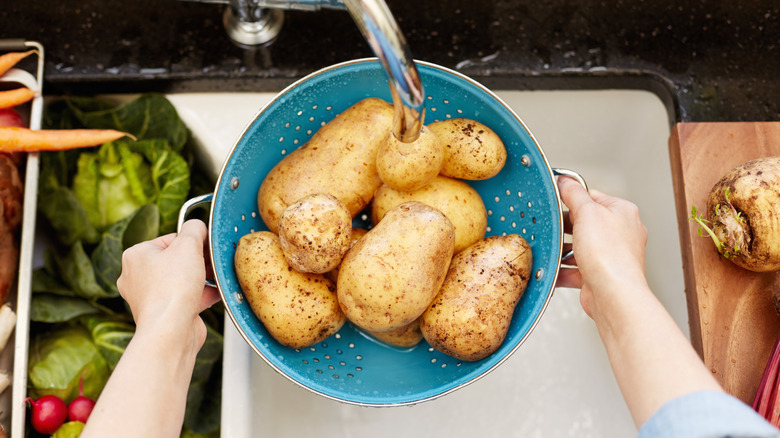One Unsuspecting Culprit Keeps Messing Up Your Homemade Hash Browns
There's an accomplished feeling that comes with making your own hash browns. You peel your potatoes, you shred them by hand, you throw them into a hot pan; this time will be different. This time your hash browns will be as good as a restaurant's. But they come out a gloopy, unwieldy mess anyway. They're sloppy, not browned, and they stick to the pan like nobody's business. You can start by avoiding the biggest mistakes people make when cooking hash browns, but keep in mind that here the real enemy is water.
To solve this problem, don't skip a crucial step for making perfect hash browns: soaking them in salt water. This helps get the starch out which helps them brown and cook evenly. You should also thoroughly agitate them while you soak them. Swish them around, really give them a violent spin. After that you need to dry them out completely. It's recommended you use a cheese cloth and wring them out as best you can. Any amount of moisture will be detrimental to a perfectly crispy hash because the presence of water inhibits what's called the Maillard reaction.
The Maillard reaction, also known as the browning reaction, is used to describe the chemical process by which the starches and amino acids in food interacts in the presence of high heat (over 300 degrees Fahrenheit). Water absorbs heat incredibly well, so when you throw wet potatoes in a pan, they won't brown or crisp. Hash browns that aren't brown or crisp are just hot, sloppy potatoes. Gross. Always dry your potatoes.
Controlling moisture content doesn't just apply to potatoes
Beyond cooking potatoes, the Maillard reaction is the foundational concept for making the perfect steak, fish, chicken, bread, beer, and so much more. When learning to cook it's important to nail these fundamental concepts because they apply to all of cooking, not just hash browns.
If you learn water is the enemy of browning potatoes, you then learn water is the enemy to browning your steak, fish, and chicken. This means cooking the perfect meal at home is learning how to control the water content and temperature of what you're cooking. There's really no magical trick to cooking, it just takes time and practice.
By applying the same principles you learn from making hash browns, you can determine why your steaks might not be browning in the pan: are you patting the steaks dry first? Drying out steaks is one of the best things you can do to create that perfect sear, particularly if you're cooking steaks in the pan (even on the grill it helps). The second factor here is maintaining heat while you cook, which is why letting your pan warm up is a great idea too. But if you can understand how moisture affects your potatoes, you're well on your way to becoming a wonderful home chef who will be cooking perfectly crisped and browned foods consistently.

